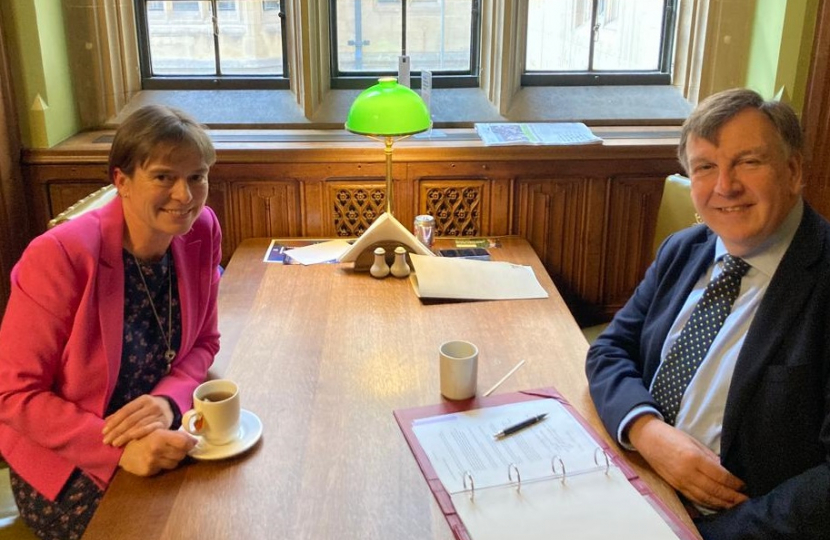
Selaine Saxby, MP for North Devon and also chair of the All Party Parliamentary Group for Broadband and Digital Communication has welcomed the pause from telecoms industry partners on the roll out of non-voluntary digital land lines.
The most vulnerable people across England will be better protected following agreement with the telecoms industry to introduce new measures when upgrading phone lines to a digital network, the Department for Science, Innovation and Technology.
After becoming aware of serious incidents, the Technology Secretary convened a meeting with the UK’s leading telecoms providers, including Sky, BT, VMO2 and TalkTalk, to discuss urgent mitigations to reduce the likelihood of further incidents, protecting those including the elderly.
Telecoms providers have now signed a Charter committing to concrete measures to protect vulnerable households, particularly those using personal alarms, known as telecare, which offer remote support to elderly, disabled, and vulnerable people – with many located in rural and isolated areas. The move represents a positive step by industry to make sure safety continues to be at the heart of the nationwide switchover and provides reassurance to vulnerable households.
Phone providers have been upgrading household landlines to digital technology which uses an internet connection, to deliver a modern network which is secure, efficient, and fit for the future. However, the Secretary of State was recently made aware of concerning incidents, involving telecare users, having their devices fail when trying to use them after the upgrade process.
Though these incidents are confined to a small number of providers, the Technology Secretary has worked with telecoms bosses to ensure robust protections are in place. Under the Charter, all providers have agreed to not forcibly move customers onto the new network unless they are fully confident they will be protected.
BT have stated:
“The urgency for switching customers onto newer digital services grows by the day because the resilience of the 40-year old analogue landline technology is increasingly fragile. It’s critically important that we manage customer migrations from old to new as quickly and smoothly as possible, while making the necessary provisions for those customers with additional needs, including telecare. The charter of commitments will help significantly in achieving these objectives.”
Having raised these issues with the Minister in a Westminster Hall debate on the 13th of December Selaine Saxby MP said:
“I am glad that industry providers have realised that in rural areas and elsewhere with poor connectivity many people were struggling with the Digital Voice switch over. Not everyone is tech savvy enough to install their hubs and many residents do not have good mobile back up and as we know, after a storm, the power can be out for some time in some of our most inaccessible areas. Battery backups are available, but frequently not well advertised or used.
Ever since I was elected, I have championed improvements to our broadband and mobile services, and we have seen gigabit availability increase from 4% in North Devon 2019 to 54% now, and superfast from 90% to 95%. There is of course more to do, but we must also ensure that everyone is able to take advantage of these new connections is able to do so.”
Telecoms Minister, Sir John Whittingdale, said:
“These commitments are a promise to the most vulnerable people in our society – we will leave no stone unturned in making your safety and security the number one priority for our telephone providers.
When people need help, they should have every confidence that the services provided to them will get them the assistance they need, and I am clear that recent failings must never happen again.
It is important we have a telecoms networks fit for the modern age and it’s right the technology is updated to keep pace with the demand we place on it, but in modernising the network providers must also work closely with customers to understand their needs, particularly the most vulnerable customers.
The Technology Secretary and I are united in this mission and will keep the pressure on network providers to ensure they are making good on these commitments.”


